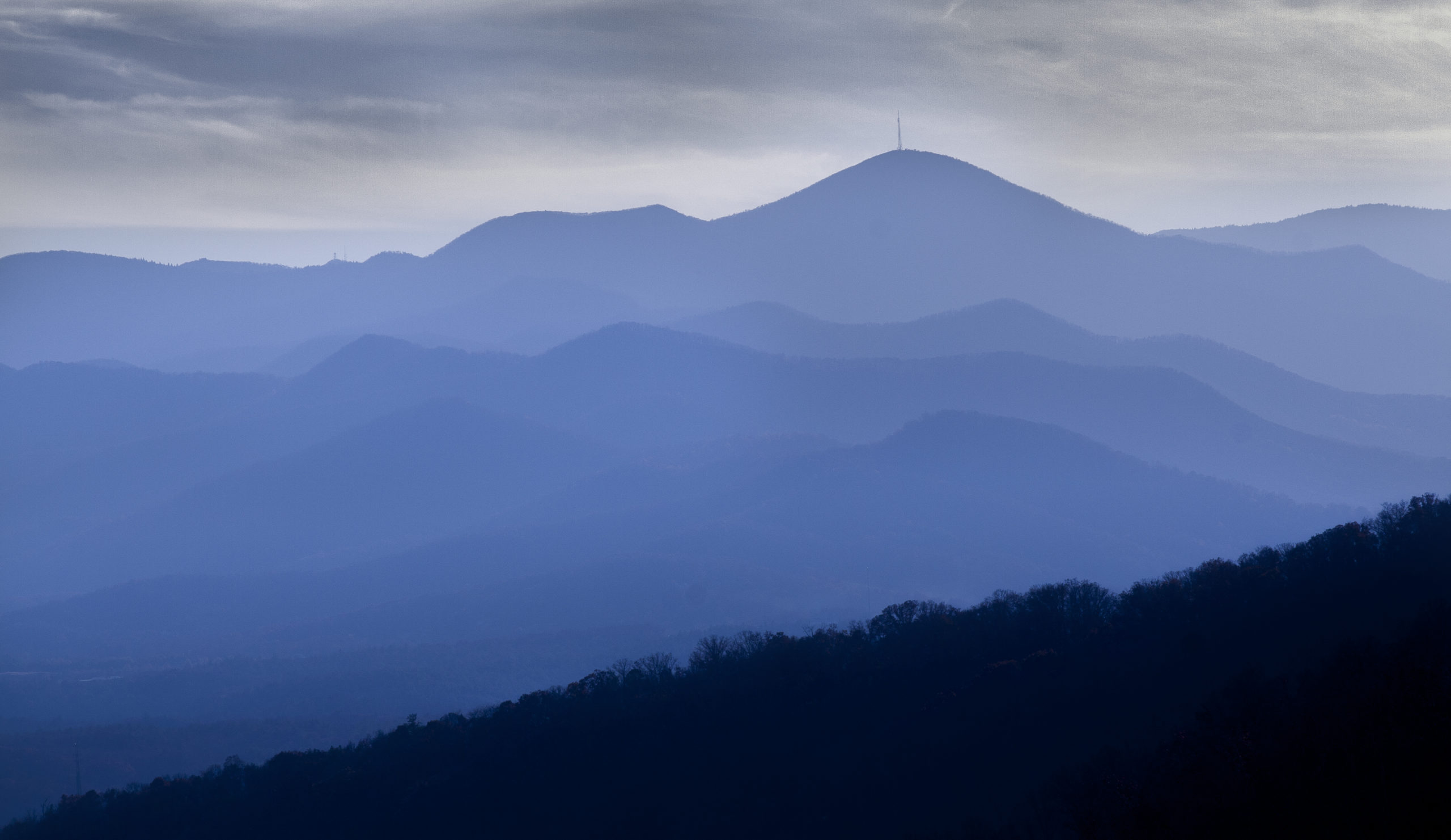September 19 is National CleanUp Day
Did your mother always tell you that you should leave a place better than you found it? If you haven’t been following that golden rule, now is your chance to redeem yourself. Saturday, September 19 is National CleanUp Day, when volunteers from coast to coast pitch in to clean up our parks, trails, beaches, mountains and open spaces.
The movement unites 180 countries across the world for a cleaner planet. Do your part and pick up some litter on Saturday, then share your story across social media while using the #trashtag. To learn more about how you can participate, visit the website https://www.nationalcleanupday.org/.
Mountains-to-Sea Trail turns 43
The Mountains-to-Sea Trail (MST), North Carolina’s long-distance hiking trail, turns 43 this September. To celebrate, Friends of the Mountains-to-Sea Trail has dreamed up some socially distanced challenges to inspire hikers and help raise funds to support the trail.
Challenges range from setting out on one of the 40 hikes in the new Great Day Hikes on North Carolina’s Mountains-to-Sea Trail guide to completing the MST “triple crown,” by tackling all three 43 kilometer MST hikes in the month of September. To learn more about the birthday challenges and to sign up, visit: https://mountainstoseatrail.org/challenges/birthdayhike/.
New poll shows that 24.6 million outdoor community members may not vote
A new poll by The Conservation Alliance shows that 24.6 million members of the outdoor community may not cast a vote this November. While 59% of outdoor enthusiasts agreed that a presidential candidate’s views on the environment are important in determining their vote; and the majority of liberal, moderate and conservatives agreed that protecting public lands and water is very urgent, only 78% said they are very likely to vote in the 2020 election. Comparatively, 88% of the general population reported they are likely to take to the polls in 2020.
Injured hikers in Wolfe County, KY are rescued thanks to GPS app
Hikers in the Red River Gorge used an app to helped a team easily locate them after one of them was injured, WTVQ.com reports. The search teams reported that the couple used a GPS app called Gaia to tell responders exactly where they were after a woman slipped and fell, hitting her leg against sandstone and incurring an injury.
The app provided the exact coordinates to rescue crews, allowing for a successful evacuation. The woman’s leg was put in a splint and she was carried two and a half miles to safety.
Despite recession, outdoor equipment is selling like hotcakes
The country may be in a deep recession, but outdoor equipment is flying off the shelves, NPR reports. Even though 30 million people across the country are on unemployment, sales of camping, outdoor and recreational equipment have been surging.
In June, sales of bicycles jumped 63% from the previous year. Sales of paddle sports like kayaking have jumped 56%. Golf equipment, camping equipment and binoculars for birding are also selling out. “Consumers who had summer plans—maybe planning on hotels, planes, cruises, concerts—those people have been forced to cancel those plans and they’re looking for something different to do with those discretionary dollars,” researcher Craig Kennison told NPR.
Campers rescued from flash flood in Kentucky
Three campers from West Virginia are safe after their truck was washed away by fast-moving water in Powell County, Ky, WSAZ.com reports. The group was camping at the Middle Fork Campground at Natural Bridge State Park Saturday night when a park ranger told the group to move to higher ground because of a flash flood.
The campers got into their truck and turned the wrong way into water, submerging their vehicle. A woman was able to jump out of the truck and swim to shore. A second camper was able to free himself from the truck after it drifted 1,000 feet downstream. Park rangers threw a rope to a third person after the truck became stuck on a tree. Despite their terrifying experience, all three campers were reported safe.
You’re more likely to be killed by a lawn mower than a bear, snake or spider
Do you worry about wildlife when you recreate outdoors? Don’t let your concerns keep you up at night. Studies show that you are much more likely to be injured or killed while working in your yard than you are while out for an overnight on your favorite backpacking trail.
According to LawnStarter, 875 people in the U.S. end up in the emergency room every day due to lawn and gardening equipment. Annually, about 26,679 people end up with a hospital stay thanks to riding lawn mower accidents and nearly 600 people die as a result of them. Comparatively, sharks, alligators and bears kill just 1 person each year, snake bites take down 6 people and venomous spiders kill 11.
Portion of the Appalachian Trail protected forever in Northern Maine
A pond and hikers’ shelter that serve as a much-needed resting spot for thru-hikers on the Appalachian Trail is now protected forever. Once owned by timber companies, the pond is now permanently conserved and open to hikers.
Conservation groups teamed up to purchase Bald Mountain Pond and the forest that surrounds it. “A locked gate will never stop future visitors,” environmental groups said in a news release. “The 2,620 acres surrounding Bald Mountain Pond’s rugged shoreline, and an iconic stretch of the Appalachian Trail, will remain protected from development and open to the public forever.”
Judge rules Great Smoky Mountains NP did not keep public updated on deadly wildfires
A U.S. District Judge in Knoxville, Tennessee has ruled that officials at Great Smoky Mountains National Park did not do enough to keep the public updated as a deadly wildfire spread from Great Smoky Mountains National Park in 2016, E&E News reports. The ruling keeps survivor lawsuits on track for a potential trial.
Judge Ronnie Greer denied the government’s motion to dismiss the case, pointing to the fact that officials didn’t provide sufficient evident to show sufficient evidence that they had met the notification obligations under their own fire management plan. The fire killed 14 people and caused $2 billion in losses.
New podcast miniseries highlights women voices of the AT
A new podcast miniseries will bring focus to the thousands of women who have built, hiked on and been inspired by the Appalachian Trail, the Appalachian Trail Conservancy (ATC) announced in a news release. “Where We Walk: Stories of the Appalachian Trail,” is a special six-part series developed by the ATC and She Explores Podcast.
The podcast will air every Monday beginning September 21. “By telling multi-dimensional stories through a range of voices, we hope to inspire future stewards, managers, hikers and dreamers of all backgrounds to experience, benefit from and help protect the Appalachian Trail,” said Julie Judkins, ATC’s Director of Education and Outreach. More information and links to upcoming podcast episodes can be found at appalachiantrail.org/where-we-walk and she-explores.com.
Hawk Watch is back at Grandfather Mountain
Visitors to Grandfather Mountain in N.C. can grab a front-row seat to a stunning spectacle of raptors migrating south for the winter, The Greenville Sun reports. Grandfather Mountain is perfectly situated to view these migrating raptors thanks to its location along the eastern escarpment of the Appalachian Mountains. It’s rocky peaks create strong thermal uplifts that allow prime visibility, a news release said.
During previous Hawk Watch events, Grandfather Mountain employees reportedly counted over 4,800 broad-wing raptors passing over the mountain in a span of less than 30 minutes, amounting to nearly 10,000 raptors a day. Due to COVID, visitors cannot participate in the typical Hawk Watch event, but are encouraged to watch the migration on Linville Peak across the Mile High Swinging Bridge and Half Moon Overlook, the first major overlook when entering the park.
It’s officials: Northern Hemisphere experienced the warmest summer on record
Summer of 2020 was the warmest summer in modern history in the Northern Hemisphere, the National Oceanic and Atmospheric Administration (NOAA) announced. Temperatures this summer beat out record temps set in 2019 and 2016, which were previous tied for the hottest-summer-on-record award that no one wants to win. August 2020 was also the warmest August in history in the Northern Hemisphere.
It wasn’t just record-setting hot in the Northern Hemisphere, either. The last three months saw the third-hottest summer across the globe since 1880 when records began being kept. The average global land and ocean surface temperatures in August was 1.69 degrees F above the 20th-century average of 60.1 degrees, NOAA said.
Photo courtesy of Getty Images by Mark Castiglia








